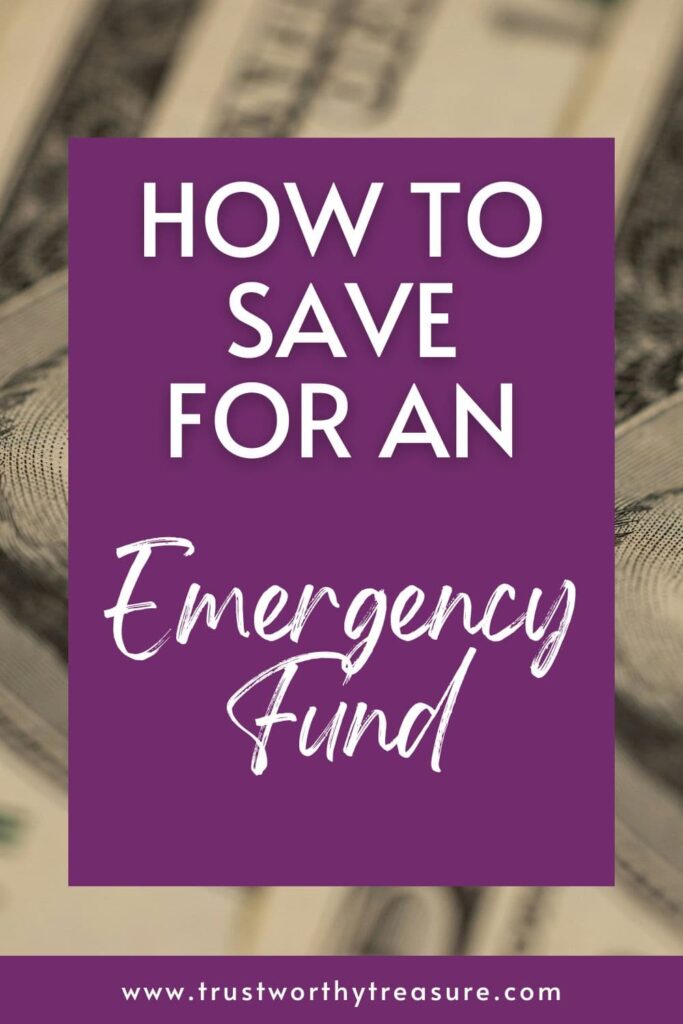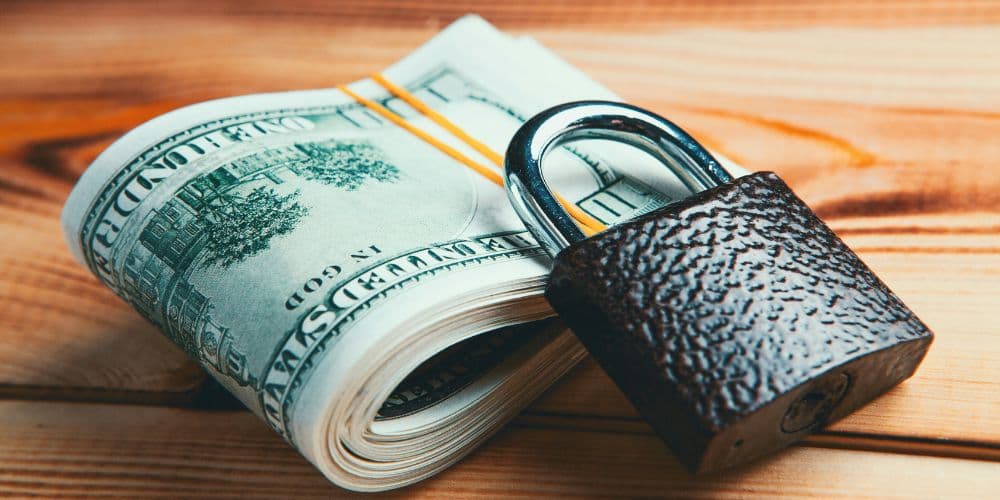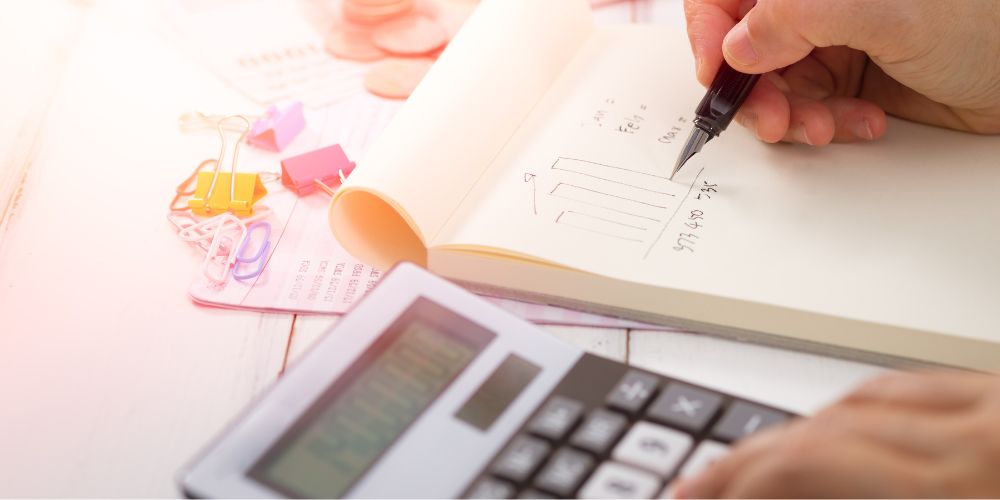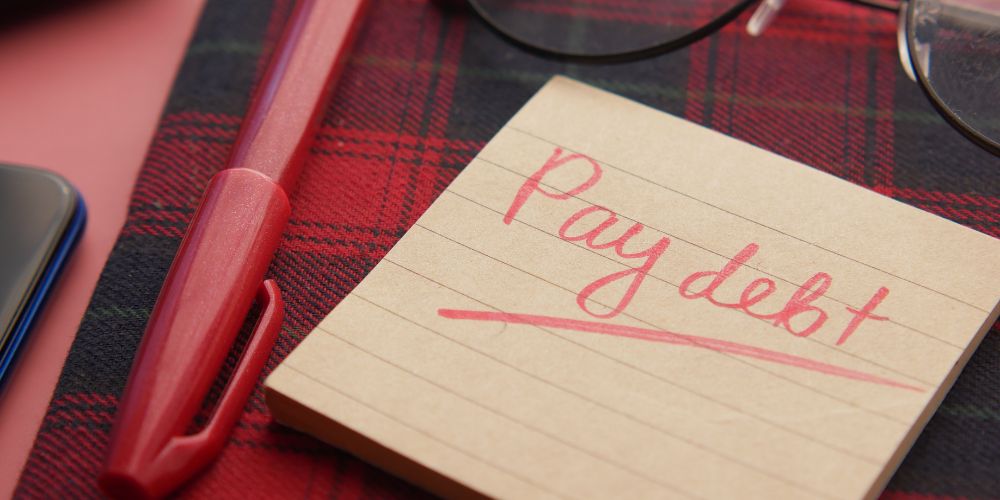Having an emergency fund is crucial to your finances. It ensures that your long term plans won’t be derailed if an unexpected expense comes up.
According to this survey, almost half of Americans can’t cover a $1,000 emergency expense.
Without an emergency fund, you’re likely to take on more debt which puts you in a further precarious situation when the next unexpected expense arises.
What is an emergency fund?
An emergency fund is money you have set aside to cover an unexpected expense. This can be anything from a car repair to covering expenses due to an unexpected job loss.
Your emergency fund is probably going to be your main savings account. You may choose to have other savings accounts for “sinking funds” (savings for a specific annual expense like insurance), but your emergency fund will hold the bulk of your savings.
How to Use Your Emergency Fund
Have you ever experienced an unexpected plumbing problem or car repair? That’s exactly why it’s beneficial to have an emergency fund.
Ways of Using Your Emergency Fund
Ideally, you will save up to 3-6 months of living expenses in this fund. The general thinking is that your emergency fund is for unforeseen circumstances.
Ours is a bit more fluid – we dip into it and replenish it regularly. This is because we try not to hold too much in our checking account at any one time and we already have several savings accounts for sinking funds.
That said, we do always maintain about 3 months of expenses in our emergency fund.
I tend to want to be rigid about it and not ever touch it. However, I have found that it doesn’t exactly work for us. The important thing is that we always have a good chunk of money on hand in case something comes up. Which it has, many a time.

Why have an emergency fund?
It is Insurance for your finances
As we have seen over the past couple of decades, due to the rising debt that Americans hold, one unexpected expense can cause serious financial problems.
While it isn’t fun saving up for unforeseen expenses, it gives you peace of mind and that is certainly worth it.
When you have money set aside for emergencies, you can invest for retirement or save for kids’ college without worrying if you’re going to get into financial trouble down the line.
It keeps you from going further into debt
With debt so commonplace in our culture, it’s easy to just add one more expense to the credit card. However, debt costs you money.
The way I think about it – you’re paying for the item whether you pay with debt or savings. However, you are either going to save up for it and pay with cash or pay with debt and have the added cost of interest.
Example - $500 Car Repair
To have $500 saved in a year requires you to put aside $41.66 each month for 1 year. Say you have a car repair come up at the end of the year that you’re able to pay out of pocket with the $500 you saved.
Paying on a credit card with ~20% interest and taking a year to pay it off
Payment of $46.32 per month
Total Interest paid $55.81
Paying on a credit card with ~20% interest and taking 3 months to pay it off
Payment of $172.25 per month
Total interest paid $16.76
What Does this mean for your finances?
As you can see, you’re paying something each month. So, why not have that money set aside so that you are not paying the extra expense of interest?
This isn’t the most realistic example as your money and savings is more fluid than this. However, it does go to show that it saves you money by preparing for unexpected expenses.
Benefits of having an emergency fund
Peace of mind
There have been so many times that we had an unexpected expense come up that was anywhere from a couple hundred to a couple thousand dollars.
While these expenses are frustrating, we had the money to cover them because of our savings. It’s always a relief to know that we can just go ahead and take care of the expense without worrying where we would come up with the money.
You can be more generous without worrying if you’ll have enough cash next month
When you have an emergency fund and a budget, you can build in charitable giving throughout the year.
Although our finances are never 100% watertight, being aware of where your money is allows you to be more generous.
Won’t I Make More by investing my money instead of saving it where it’s earning no interest?
The goal of an emergency fund is to avoid going into any more debt. I’ve heard the argument before that since you may earn a higher return by investing your money, you should do that and take on debt when needed (since interest rates on a lot of loans are so low).
The thinking behind this is that debt is so cheap, you’ll earn more out of investing then letting your money sit in a savings account.
This is a complicated game to play. In general, I think it can also be a pretty risky game, especially if you let debt get out of control.
How to save an emergency fund
Determine your goal amount
If you do not yet have an emergency fund, it should be a top priority after establishing your budget.
You’ll want to save this up as quickly as possible, even if it means taking away from other savings goals in the short term.
Giving yourself a deadline is helpful – if you save your goal amount before, then great!
Budget & Cut Costs
If you haven’t already, creating a budget will show you where you need your money to go. As you create your budget, you will also see ways you can cut costs.
I’ve created a list of ways you can cut costs that may be helpful as you save for your emergency fund!
Season of Saving
While it may feel like saving for an emergency fund is rudimentary or boring, remember it is only for a season.
Hopefully, you will be able to save up your 3-6 months of expenses within a year. After establishing your emergency fund, you can put all that money toward other financial goals while having peace of mind in your day-to-day finances.
Where to keep your emergency fund
Should be easily accessible
If you need to pay for an emergency, you will want the money where you can access it quickly. A savings account or money market will usually work well for this.
Be unified with your spouse on where to keep it
I bring this up because I had moved our emergency fund to a money market at a different financial institution than the rest of our savings and checking accounts.
While my husband agreed with the move, I didn’t fully communicate what we needed to do if we needed to access the money. This led to a situation where I needed to wire some money (at an extra fee) after overdrawing on our checking account (another fee).
Had I just kept it at the same bank as our other accounts, we wouldn’t have had this issue. I have since moved it back because that is what works best for us.



